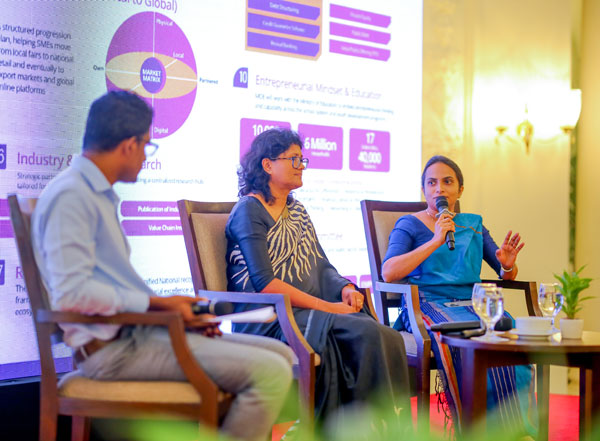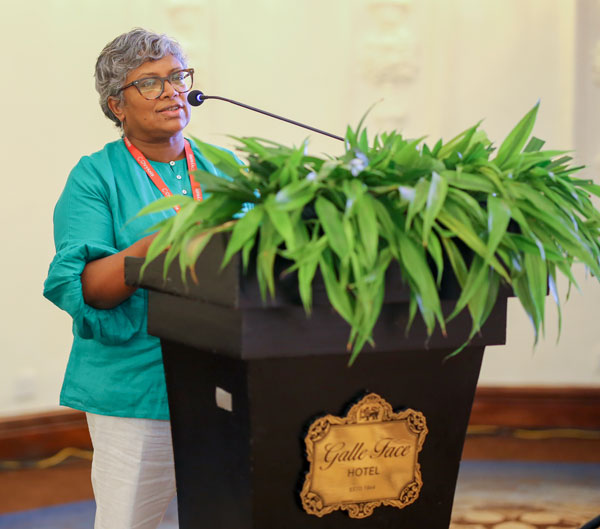The Women Mean Business (WmB) Coalition, supported by the Co-Impact Gender Fund and convened by Chrysalis, held its 5th Coalition Meeting on October 29, bringing together over 80 representatives from women-led business consortia across multiple districts, government institutions, financial organizations, UN and bilateral agencies, academia and civil society. The gathering aimed to accelerate gender-transformative reforms within Sri Lanka’s Micro, Small and Medium Enterprises (MSME) sector.
The Coalition continues to serve as a platform for collaboration and advocacy, connecting stakeholders to drive systemic change for women entrepreneurs under six thematic areas—policy and regulatory reform, access to finance and markets, climate finance, entrepreneurial culture and norm change, and gender-based violence (GBV) mitigation.

At the 5th Coalition Meeting, Ashika Gunasena, CEO of Chrysalis, stated that Women-owned MSMEs are a driving force for inclusive growth. ‘Through the Women Mean Business Coalition, we’re connecting policymakers, financial institutions, and women entrepreneurs to build a system that recognises and responds to women’s economic realities’ she added.
Azusa Kubota, Resident Representative of UNDP in Sri Lanka, reaffirmed UNDP’s commitment: ‘UNDP is committed to inclusive growth and systemic change in the MSME sector. In partnership with Chrysalis, we are using evidence-based analysis to enhance gender-responsive policies and budgets, creating an enabling environment for women-led enterprises to access financing. The Women Mean Business Coalition demonstrates the power of collective action to place women at the center of MSME transformation for sustainable and equitable development.’

Speaking on the Ministry’s approach, Anoja Herath, Additional Secretary for Entrepreneurship Development at the Ministry of Industry and Entrepreneurship, noted: ‘The Ministry is focused on identifying high-potential entrepreneurs, moving beyond livelihood businesses, and providing tailored support through 600 trained relationship officers. Each officer will guide SMEs for about two years, helping them become creditworthy and sustainable by coordinating with agencies like NEDA, SEDD, IDB, EDB, and NPS to deliver the right support at the right time.’
From the entrepreneur’s perspective, Selvachenthan Uthayaleka, Owner of ‘Pootiyamma Small Industries’ in Mullaitivu, shared: ‘I’m always willing to work with the government and banks, but we rarely see real support. Through this coalition, I hope more attention will be given to districts like Mullaitivu and Kilinochchi, so entrepreneurs like us can grow our businesses and strengthen our communities.’
The meeting concluded with renewed commitments toward joint advocacy, knowledge-sharing, and coordinated action to strengthen gender equity and sustainability across Sri Lanka’s MSME ecosystem.
Leave Comments